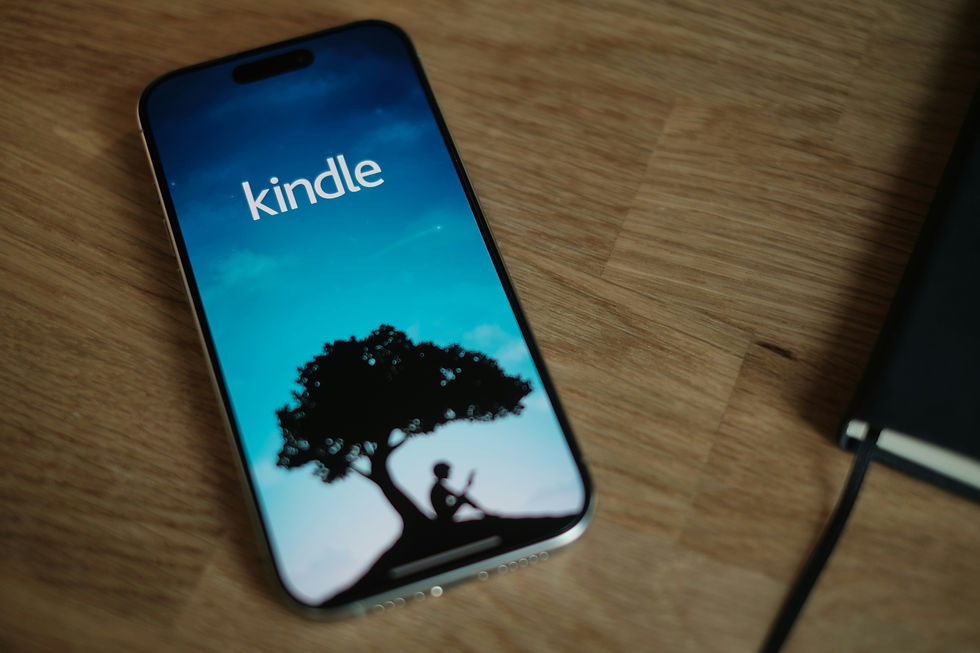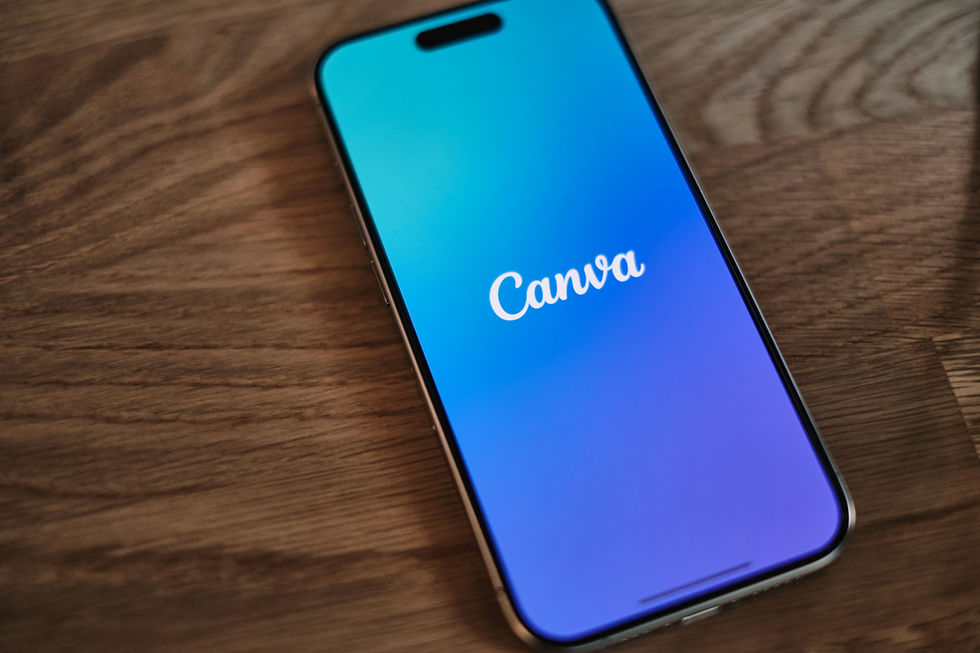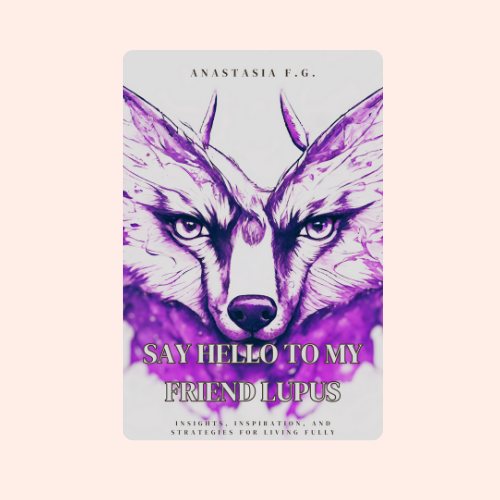Author’s Survival Kit - Wellness & Writing Resources
Welcome to my little treasure chest of tools - lovingly called the Author’s Survival Kit. This is where creativity meets chronic illness with a whole lot of compassion. Inside, you’ll find the resources that have helped me stay grounded, productive, and well... through the ups, the flares, and the writing marathons. From comfy, lupus-friendly gear to self-care rituals and favorite apps, everything here has earned its spot by truly supporting me on this wild ride. I’m sharing them in case they become part of your toolkit too, because no one should have to do this alone.
Explore what might work for you. 💜
Writing Tools & Software
-
Scrivener – it can completely transform how you organize your books. It allows you to jump between chapters, research, and character profiles all in one place. You can split your screen to reference earlier scenes while writing new ones, which can be quite helpful for maintaining consistency if you are writing a series. The compile feature is a game-changer, you can export your manuscript in any format you need, whether for your beta readers, your editor, or the final publication.
-
Grammarly – this one has saved me from countless embarrassing typos and awkward phrasings, catching things I would have missed even after multiple read-throughs. The way it adapts to my writing style and offers suggestions for making my text more engaging has helped me develop a stronger voice. I especially appreciate how it works everywhere - from my manuscript drafts to my social media posts where I interact with readers, and even with my email.
-
Hemingway app - this app is my secret weapon for making my text effective and clear. It highlights wordy sentences and complex phrases that might confuse readers. I run every chapter through it when I'm editing because it helps me spot when I'm getting too wordy or using too much passive voice. It's like having a no-nonsense editor sitting next to you, pushing you to be more concise and impactful.
Productivity & Organization
-
Pomodoro Technique – this technique has been an absolute lifesaver for maintaining my daily word count goals. I can't believe how much more I write when I break it into focused 30-minute chunks (The technique is for 25 minutes, but I like to have a round number :) ). The short breaks between sessions keep my mind fresh and prevent the burnout I used to experience during long-writing marathons. I've found that knowing I only need to focus for 30 minutes makes it so much easier to get started, especially on days when motivation is low.
-
Google Calendar – GC has become my writing schedule's backbone, helping me block out dedicated writing times and track my deadlines for drafts, editing, and publication. I love how it sends me reminders for my writing sessions, making it feel like having a personal assistant who keeps me accountable. The way it syncs across all my devices means I can check my schedule anywhere, which helps me plan my writing time around other commitments.
-
Notion - has revolutionized how I manage everything from my chapter outlines to my publishing checklist. I particularly love how I can create linked databases for sources, interview transcripts, and key concepts, making it easy to keep track of all my references and supporting materials. The templates feature has saved me hours of setup time since I can reuse my favorite research frameworks and chapter outlines for each new book project.
Self-Care Essentials
-
Yoga mat - My yoga mat has become my best friend for breaking up those hours of sitting. I keep it right next to my desk for quick stretching sessions when my back and shoulders start to tense up. It's amazing how just five minutes of gentle stretches can refresh my mind and get my creativity flowing again. I especially love doing a full morning yoga routine on it before I start writing, as it helps me begin my day with a clear, focused mind.
-
Aromatherapy diffuser – this little gadget has completely transformed my writing space. I usually switch between peppermint for focus during drafting sessions and lavender when I need to calm my mind during stressful editing deadlines. I've noticed that having different scents for different writing activities helps me get into the right headspace more quickly, almost like a sensory trigger for my brain. The soft mist it produces also adds a lovely ambiance to my workspace, making it feel more like a cozy retreat than an office space.
-
Heating pads – the heating pad is my secret weapon for those days when chronic pain decides to emerge and bug me. I tuck it behind my lower back when I feel tension building up, and it helps me stay comfortable at my desk while writing. The warmth not only soothes my muscles but also creates this comforting cocoon that helps me stay in my writing flow state longer.
Wellness Essentials for Chronic Illness Management
-
My Lupus Symptom Tracker - this one is close to my heart since I've created it based on my personal needs while struggling with chronic illness. It can be an incredibly useful tool for anyone dealing with lupus or similar autoimmune illnesses because it helps track symptoms, medications, and overall well-being. Chronic illnesses can fluctuate, and without a clear record, it can be easy to overlook important patterns or changes. The structure of the tracker also equips the user to have informed conversations with their doctors, which is crucial for effective management.
-
Productivity Planner - writing with a chronic illness often means you have to be mindful of your energy levels and mental clarity. A productivity planner can help manage tasks in a way that aligns with your health, allowing you to break tasks into manageable chunks and prioritize them according to your well-being. It’s not just about staying productive; it’s about being kind to yourself and creating sustainable habits.
-
Medication Organizer - to be honest, I have several of these :) Consistency in taking medications is critical, especially when dealing with complex conditions. A medication organizer is simple but can make a huge difference in ensuring you’re taking the right medications at the right time. For anyone with a chronic illness, it’s a no-brainer to reduce stress around managing medications. Especially on days when you have a brain fog, and wonder if you have taken your medications.
Publishing & Marketing
-
Fiverr – this platform is a lifesaver for finding quality book cover designers and editors who fit your budget. You can discover some incredible talent there who understand your vision and deliver professional results. I especially love how you can browse through portfolios and reviews to find the perfect match for my specific genre and style needs.
-
BookBub - I've just started experimenting with BookBub, but I'm already impressed by their massive reader base and the potential to get my books in front of new audiences through their featured deals program. While I'm still learning how to use their reader demographics best and targeting options, I love how detailed their promotional planning tools are for reaching specific genre readers. Even though I haven't landed a featured deal yet, I'm finding value in their promotional newsletter and platform analytics to understand what kinds of price points and marketing strategies other authors in my genre are using successfully.
-
Kindle Direct Publishing (KDP) – KDP has made the entire publishing process remarkably straightforward, from formatting my manuscript to tracking my sales in real time. It is truly a one-stop shop for self-publishers. The platform's print-on-demand feature has allowed me to offer paperback versions of my books without any upfront inventory costs, which has been amazing for my business model. I particularly appreciate how quickly royalty payments are processed, and the detailed reports help me understand which marketing efforts are actually driving my sales.
-
Canva – A resourceful and user-friendly tool I use for designing everything from book covers to social media posts. Its templates and drag-and-drop features make creating professional-looking visuals easy, even for beginners. It’s my no. 1 tool for promotional materials and engaging posts for my audience.
Recommended Books
-
The Spoon Theory by Christine Miserandino – although technically not a book, still it is a powerful personal essay that uses metaphor to show the finite energy that people with chronic illnesses have each day. Christine’s concept of "spoons" as units of energy has helped me communicate my limits better, both to myself and others, without feeling guilty. It’s a quick but powerful read that can shift your perspective, helping you conserve your "spoons" for what truly matters in both health and creativity.
-
The Lady's Handbook for Her Mysterious Illness by Sarah Ramey - Sarah’s journey with chronic illness is raw, insightful, and validating, especially for those of us who live with invisible conditions. Her storytelling is both compassionate and informative, shedding light on the unique challenges and frustrations faced by people who feel misunderstood by the healthcare system. It gave me a sense of solidarity and encouragement to keep advocating for my needs, which is incredibly empowering as a writer who faces similar struggles.
-
Say Hello to My Friend Lupus by Anastasia F.G. - This one is close to my heart since it’s my own, and I wrote it to provide a practical guide for fellow lupus warriors navigating everyday life. The book is filled with personal stories, tips, and strategies I’ve learned over the years to manage my health while still pursuing my goals. I poured everything I wish I’d known earlier into this book, so I hope it can be a reassuring and motivating companion on your path, too.
-
Soundtracks: The Surprising Solution to Overthinking by Jon Acuff - Overthinking can be paralyzing, especially when dealing with a chronic illness, as it’s easy to get stuck in loops of worry or self-doubt. Acuff’s approach to breaking unhelpful "soundtracks" or mental patterns is straightforward, fun, and surprisingly effective. I’ve found his techniques really helpful for staying focused on my creative work without letting health-related anxieties get in the way, making it a great resource for both life and work.
-
The 5 Second Rule by Mel Robbins – Taking action can feel overwhelming, especially when living with a chronic illness that brings its own set of daily challenges. Robbins’ simple yet powerful “5-second rule” – counting down from 5 to overcome hesitation – offers a practical way to break out of doubt and take small steps forward. It is especially useful for those days when my motivation feels distant, helping me push past inertia and stay productive even with limited energy. This book can be a great motivational tool for both personal growth and creative work.
I hope these resources empower you on your author journey. Let me know if you have any other recommendations to add!
Disclosure: Some of the links above are affiliate links, which means I may receive a small commission if you choose to purchase through these links. This comes at no additional cost to you, and I only recommend products and services I genuinely use and believe in. Your support helps maintain this resource and my ability to continue creating content.

























